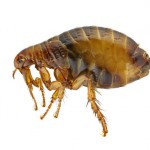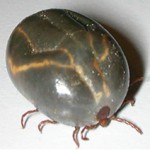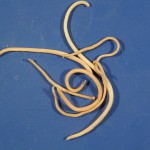Fleas, Ticks & Worms
Fleas
- If you see one flea, you have a flea problem!
- One flea can lay up to 50 eggs per day and so this can soon become a big issue.
- With fleas, prevention is always better than cure and in a warm and humid place like Auckland, fleas are present all year round.
- Most products are an easy to use monthly liquid application that is applied to the back of your pet’s neck or a yummy oral chew.
- Here at Pakuranga Vets we stock: Bravecto, Nexguard Spectra, Simparica Trio, Advantage & Seresto collars
- Some treatments work on fleas only, others are a combined flea & worming treatment in one.
- We also recommend treating the environment – your house.
- Not all Flea bombs/foggers are made equal. Be sure you are using bombs that are large enough to treat the area and contain a growth regulator.
- We recommend and Indorex foggers and target sprays. These last up to 12 months and do a larger surface area than most of the supermarket brands.
Ticks
Ticks are becoming more common as the rural/suburban divide lessens. Often your dog will pick them up walking in areas where cattle have been grazing.
- There is only one species of tick in New Zealand – The NZ Cattle tick (haemophysalis longicornis). These ticks can cause irritation, anemia and can lead to an abscess.
- If you see a tick on you animal DO NOT pull it off, this can leave the head behind and cause problems
- To remove the tick at home – cover it in Vaseline and wait for it to drop off (This will suffocate the tick). If this doesn’t work, phone the clinic for other little tricks.
- To prevent ticks you can use a product such as Bravecto, Simparica Trio or Seresto. These will also treat your animal for fleas..(Currently there are no reported cases of paraylsis ticks in NZ. If you are concerned about the type of tick please come into the clinic and we can identify it for you)
Intestinal Worms

– A regular worming program is essential
- Young cats and dogs may suffer poor health, malnutrition, diarrhoea, vomiting, anemia and stunted growth.
- Pets can be infected by a number of different types of worms. These include roundworms, hookworms, and tapeworm. (Ringworm is in fact NOT a worm, but a fungal skin infection).
- It is important that you pet is wormed from a very young age & throughout their lives.
- Our worming regime is as follows:
Kittens & Puppies require treatment every 2 weeks until the age of 12 weeks, then monthly until they reach 6 months of age.
Adult cats and dogs should be treated every 3 to 6 months.
- Tapeworms are often seen as small “grains of rice” around the anal area. These worms cycle through fleas so are an indication that your pet is likely to need flea treatment.
- At Pakuranga Vet Clinic we stock Milpro & drontal tablets for cats & dogs. Nexguard spectra chews for dogs
